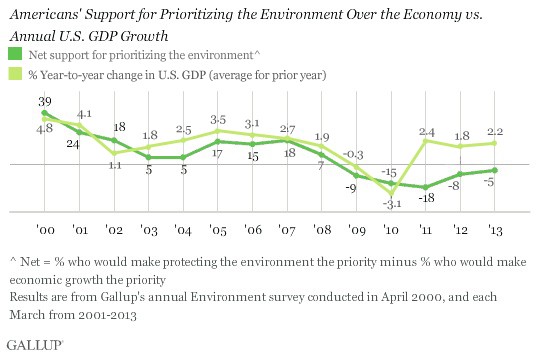Survey Americans Pessimism Over Economy Rises
Post on: 21 Июль, 2015 No Comment

About
Stocksnapper/Alamy By JOSH BOAK
WASHINGTON — Americans are more anxious about the economy now than they were right after the Great Recession ended despite stock market gains, falling unemployment and growth moving closer to full health.
Seventy-one percent of Americans say they think the recession exerted a permanent drag on the economy, according to a survey being released Thursday by Rutgers University. By contrast, in November 2009, five months after the recession officially ended, the Rutgers researchers found that only 49 percent thought the downturn would have lasting damage.
And that was when the unemployment rate was 9.9 percent, compared with the current 6.2 percent.
They’re more negative than they were five years ago, said Rutgers public policy professor Carl Van Horn.
The slow pace of improvement during most of the recovery, now in its sixth year, has eroded confidence and slowed a return to the pay levels that many enjoyed before the economy suffered its worst collapse since the 1930s. About 42 percent of those surveyed say they have less pay and savings than before the recession began in late 2007. Just 7 percent say they’re significantly better off.
The survey results dovetail with estimates that the median household income was $53,891 in June, according to Sentier Research. That’s down from an inflation-adjusted $56,604 at the start of the recession.
Each year of subpar growth has compounded the anxieties of many Americans. In contrast to the robust snapbacks that coincided with most economic rebounds, this recovery proved tepid well after the recession had ended. Consumers struggled with an overhang of mortgage debt and the risk of layoffs for much of the recovery. A majority of those surveyed say they fear that job security has all but disappeared and that they’ll have little choice but to work part time during retirement.
No current worker had ever experienced this before, Van Horn said. This recession was everywhere.
Researchers at Rutgers’ John J. Heldrich Center for Workforce Development surveyed online a national cross-section of 1,153 adults between July 24 and August 3. The margin of error was plus or minus 3 percentage points. The survey is part of a broader series of polls taken over multiple years to study the consequences of the recession for workers.
Recent evidence of economic strength has done little to brighten most Americans’ outlooks. The Standard and Poor’s 500 stock index (^GPSC ) has surged more than 170 percent since bottoming in March 2009. Yet only 14 percent of the respondents said the gains have affected them a lot — a sign of either meager investments or the extent to which families unloaded their stock holdings near the bottom of the market.

Employers have added an average of more than 244,000 jobs a month since February, a vigorous pace that recalls the dot-com era of the 1990s. Over the past 12 months, the unemployment rate has dropped more than a full percentage point from 7.3 percent to a nearly normal 6.2 percent.
This month, job growth helped propel the Conference Board’s consumer confidence index to its highest reading since October 2007. The index often tracks the unemployment rate.
The gap between the index and the Rutgers survey likely reflects the type of questions posed by the university researchers. They asked about family finances, job satisfaction, retirement plans and the specific consequences of the recession. By contrast, the confidence index asks about broader perceptions of business and employment conditions and plans to buy autos, homes and household appliances.
For many employers, open enrollment season for some benefits happens in October. This usually sneaks up on some people, who scramble to decipher benefits and make elections last minute. Although you won’t be able to see the options until the enrollment period opens, take time now to review your benefits. Are you taking advantage of any 401(k) matches? Are your fully funding your Flexible Spending Account? What about employer offered life and disability insurance? (A fun infographic from the Council for Disability Awareness shows your risks). Maximize your benefits and don’t leave any money on the table.
Back-to-school time can be expensive if you’re not prepared. Money is spent on clothes, books, supplies and technology — and that’s before the doors to the classroom have even opened. Before hitting the stores, do these two things:
- Conduct an online search for coupon code along with the name of any store you’ll be shopping at. Typically you can find some great online deals.
- Get a list from you class or teacher of specific type of notebook, calculator, etc. required. If you can’t get child’s must haves from ahead of time, buy just the bare minimums until school starts and the list is available.














